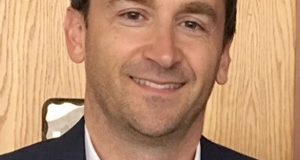The North East Local Health Integration Network (NE LHIN) has named the Executive Directors of the region’s three Aboriginal Health Access Centres (AHACs) – Gloria Daybutch, Angela Recollet and Pam Williamson – as Healthy Change Champions for their work in advancing the system of care for Aboriginal Northerners.
Gloria Daybutch is Chair of the LHIN’s Local Aboriginal Health Committee (LAHC) and Executive Director of the Maamwesying North Shore Community Health Services Inc. located in Cutler. Angela Recollet is Executive Director of Shkagamik-Kwe Health Centre in Sudbury and a member of LAHC. Pam Williamson is Executive Director of Noojmowin Teg Health Centre in Little Current, a member of LAHC, and Co-Chair of the NE LHIN’s Mental Health and Addictions Advisory Council.
“Gloria, Angela and Pam are exceptional leaders. Each of these women is committed to greater health equity for Aboriginal Northerners,” said Louise Paquette, CEO of the NE LHIN. “I am proud of the pivotal role they play in our LHIN work through both leading and actively participating in key initiatives. Each one of them was a strong voice in shaping our North East LHIN Health Care Strategy and Reconciliation Action Plan which we launched last fall.”
The Reconciliation Action Plan outlines goals in four strategic directions that are aligned with the Medicine Wheel’s quadrants: opportunities, relationships, knowledge and understanding, and sustainability and evaluation. The plan also includes 25 specific actions, timelines, and measurable targets to improve health care for Aboriginal Northerners over the next three years.
Within the first nine months since its launch, the NE LHIN has provided cultural safety training for more than 400 Northerners through an eight-week online training course. This course is designed to broaden understanding of the history of Aboriginal Canadians and strengthen the skills of practitioners working with Aboriginal people. The NE LHIN has also appointed a public health member to its Local Aboriginal Health Committee (LAHC). It has also re-aligned its internal resources so that a designated group of LHIN staff work in partnership with federal and provincial partners, as well as health service providers, to improve health care services for Aboriginal Northerners.
QUOTES:
“Health care for Aboriginal Northerners is transitioning to more culturally safe health care services where partnerships and leadership are structured on meaningful and inclusive conversations, recognizing the need to work together for the well-being of all.” – Gloria Daybutch, ED of the Maamwesying North Shore Community Health Services Inc., Cutler
“The building of partnerships and positive relationships is key to successful service delivery. We believe that this fundamental way of working together has had the greatest impact on programs and services in the north. With our vast geography we have cooperatively worked to find solutions in providing the much-needed services in our Northern communities. This allows for a collective benefit for positive health outcomes for the populations we serve.” – Angela Recollet, ED, Shkagamik-Kwe Health Centre, Sudbury
“As colleagues and partners, the three Aboriginal Health Access Centres located within NE LHIN share common cultural practices in delivering a number of multi-disciplinary services to the Indigenous populations served. We are committed to supporting a model of holistic health and well-being by ensuring culturally safe and culturally appropriate care, incorporating traditional healing practices, supporting clients’ self-management and autonomy, and providing care that encompasses both individuals and their families.” – Pam Williamson, ED of Noojmowin Teg Health Centre, Little Current
FACTS:
- The Aboriginal population within Northeastern Ontario is approximately 11% of the total population.
- Aboriginal Health Access Centres (AHACs) are Aboriginal community-led, primary health care organizations. They provide a combination of traditional healing, primary care, cultural programs, health promotion programs, community development initiatives, and social support services.
- The NE LHIN Healthy Change Champion recognizes people or organizations that are helping to transform Northeastern Ontario’s health care system so that it is more patient focused, integrated, and easier for Northerners to access. Any Northerner can suggest a Healthy Change Champion. Send your nomination to [email protected]or 555 Oak Street East, Third Floor, North Bay, ON, P1B 8E3.
- Hwy 17 (Wawa to Trails End Road/Montreal River Harbour) CLOSED – Washouts - July 16, 2025
- Wednesday Morning News – July 16 - July 16, 2025
- Power Outage (Wawa and area) - July 15, 2025
 Wawa-news.com You can't hear the 'big picture'!
Wawa-news.com You can't hear the 'big picture'!

I applaud these actions. Seems to me a big and positive change is now in the works. Best wishes as you move forward on this.